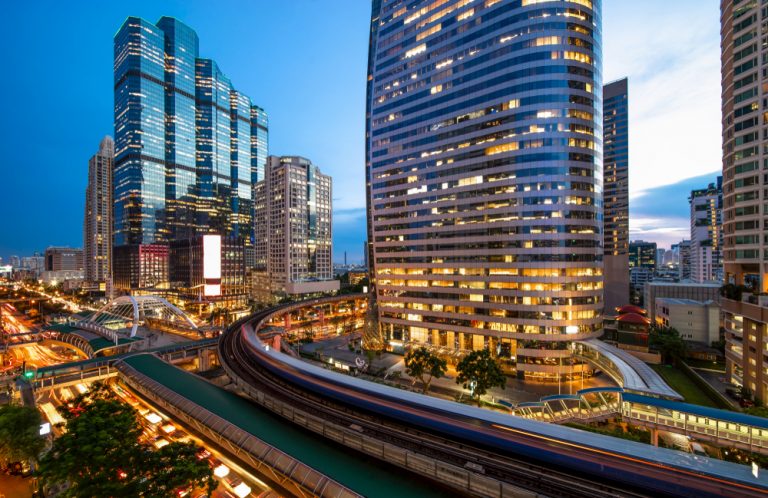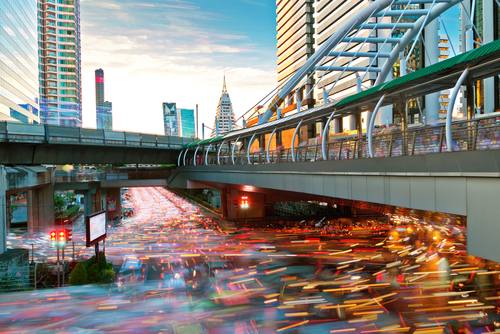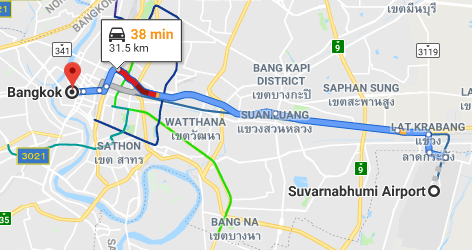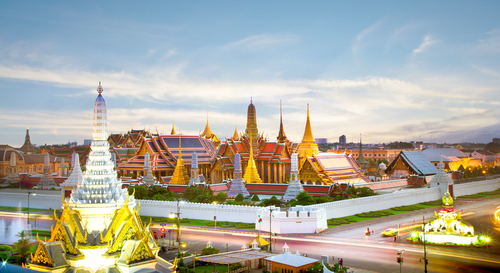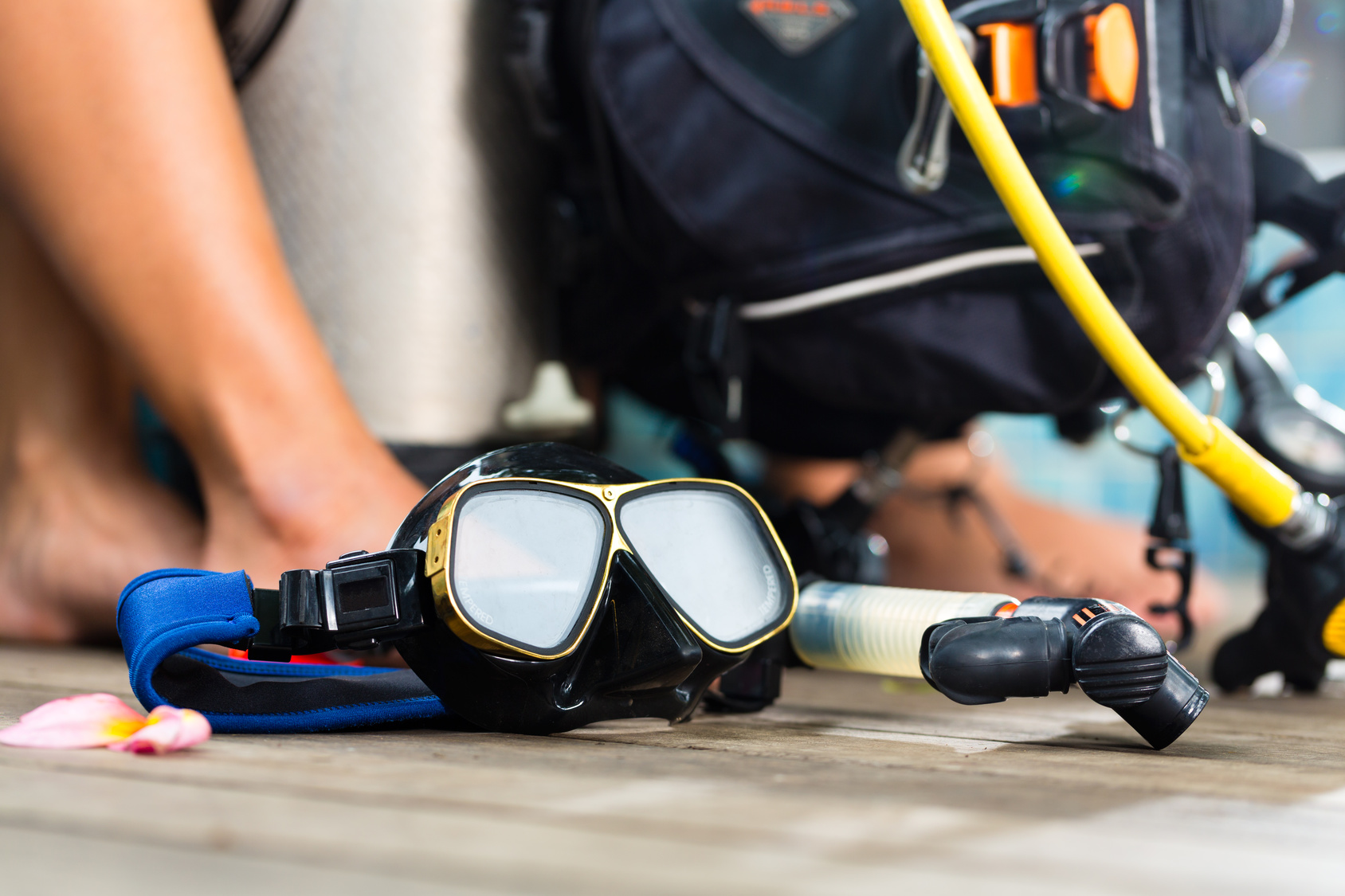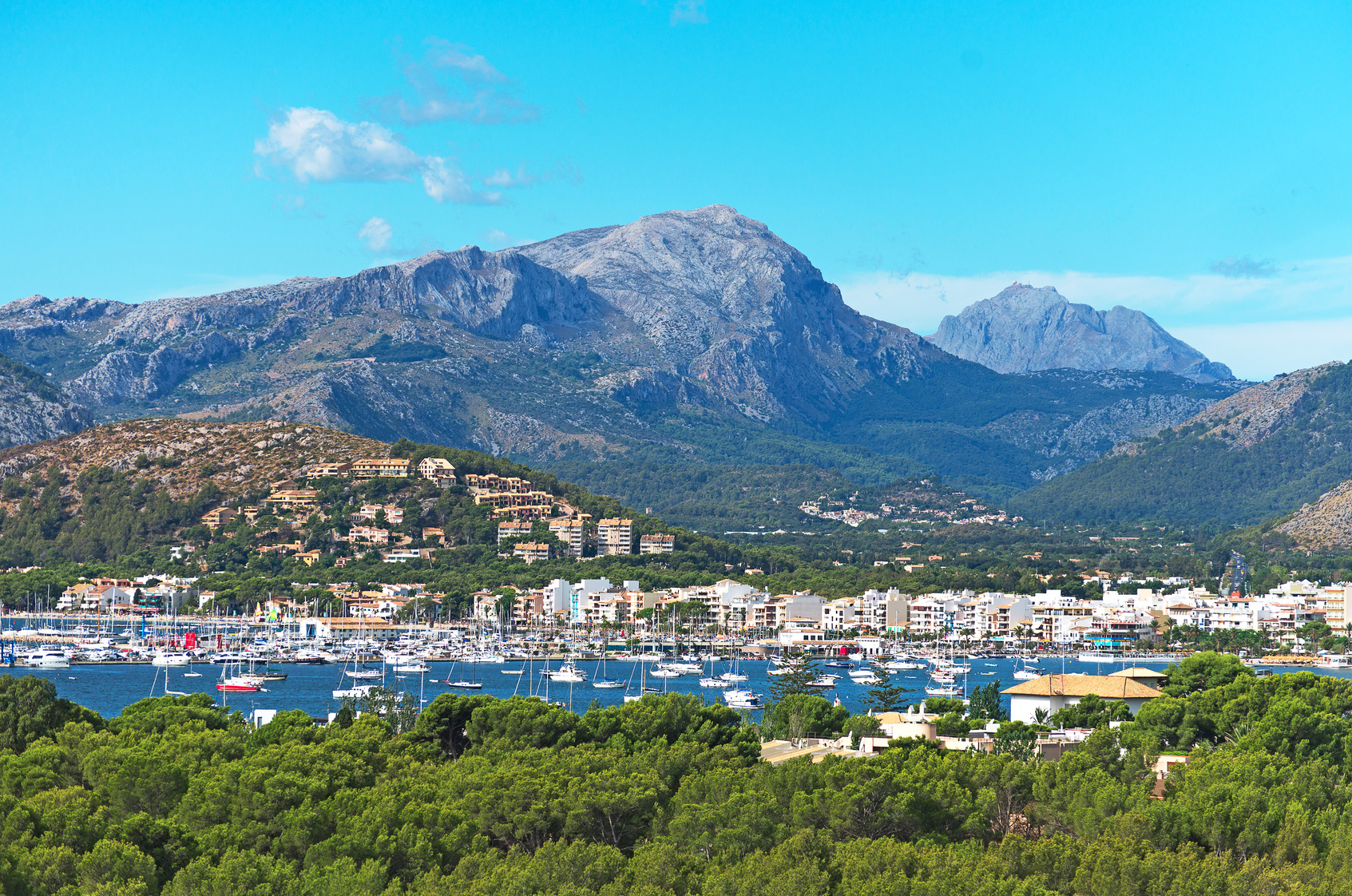Thailand alone has a population of almost 70 million. It has a dynamic economy which is a member of the 650 million strong ASEAN trading block which offers many exciting business opportunities in the region. Whilst the country is known as the ‘land of smiles’ visiting executives shouldn’t be lulled into a false sense of security when hoping to close deals in this part of the world. Thai business people are experienced and astute operators who will take their time in building relationships with foreigners before deciding whether to sign on the dotted line. In order to maximise their chances of success, Western business people visiting Bangkok should do a little research into the city and how business is conducted in Thailand.
Business Arrivals
Bangkok Airport: Most business travellers will arrive at Suvarnabhumi International Airport which lies 30km east of the city centre. If time is of the essence, there are excellent business lounges at the airport where meetings can be arranged. Some regional arrivals touch down at the older Don Mueang Airport which lies 25km north-east of downtown Bangkok.
Airport Transfers: Business travellers can pre-book private transfers from Suvarnabhumi International Airport to their hotel and have a driver awaiting them on arrival. Alternatively, there are official airport taxis as well as the Bangkok Airport Rail Link which runs to Phayathai Station in the downtown area.
Where to Stay: Bangkok’s Central Business District lies in the Silom neighbourhood where plenty suitable accommodation options are available. The area is also well connected with the rest of the city thanks to the Skytrain (BTS) and Metro (MRT) services. Another upmarket district with excellent transport connections and the largest concentration of shopping malls is Siam. For a wider range of properties to suit any budget the Sukhumvit area is highly recommended and is a good choice for getting around thanks to the Skytrain service. The most prestigious properties are located along the Riverside but this part of town isn’t as well connected as the other ones mentioned.
Getting Around: Whilst metered street taxis continue to ply their trade on the streets of Bangkok there’s no need allow extra hours for traffic jams before business meetings thanks to the city’s excellent, integrated transport network. Better known as the ‘Skytrain’, the Bangkok Mass Transit System (BTS) allows commuters to easily get around the city and connects with the Bangkok Mass Rapid Transit (MRT) which is the city’s underground system. Business travellers who are staying in a hotel some distance from where they will be attending meetings should ensure that they are within a short walk of the nearest Skytrain station. Visitors who prefer to travel by taxi should download the Grab taxi app which is Bangkok’s version of Uber.
Doing Business in Bangkok
Working Hours and Holidays: Businesses in Bangkok typically work a 5-day week beginning at 8am or 9am and ending at 5pm or 6pm. A one hour lunch break is normal. Some companies will work on a Saturday morning although business meetings are unlikely to be scheduled for the weekend. Whilst you should ensure that you arrive on time for your meeting you shouldn’t be surprised if your host is a little late. Corporate travellers should confirm the dates of Chinese New Year (February) and the Songkran Festival (April) before planning any business trips.
First Impressions: Both male and female business travellers should wear formal, dark coloured suits for meetings. On arrival a simple handshake is the most common form of greeting although some Thais may press their hands together and bow slightly. This is known as a ‘wai’ and is the typical national greeting which should be reciprocated. Initial interactions will most likely be about building relationships which are integral to doing business in Thailand. Don’t make the mistake of trying to get down to business straight away as your host will most likely want to chat with you about your family, where you live and your interests, etc.
Business Meetings: Executive meetings are usually held in English although interpreters will be made available when necessary. It is very important for visitors to Thailand to be respectful of senior executives who often hold the top positions in an organisation based on years of service rather than their achievements. Initial meetings often involve the exchange of business cards which are highly valued in the Thai corporate world so be sure to have professional-looking ones printed before travelling.
Once negotiations are underway be sure to be respectful of everyone in the meeting. Comments which might be construed as being in any way negative towards a Thai executive will cause them to ‘lose face’. This is unacceptable behaviour which could prove highly detrimental to your hopes of doing business in Bangkok.
Thai Business Hospitality: During a business trip to Bangkok you may well be invited to go for lunch with your Thai counterparts or even have dinner at the home of a senior member of staff. On arrival you should observe what is the etiquette with regard to removing shoes before entering a restaurant or home. Your host will indicate where you should sit as the most senior guests will be seated at the head of the table. Don’t worry about having to master the use of chopsticks as forks or spoons are more common when eating Thai food. Bringing a typical gift from your home country for your host is a nice touch which will be most appreciated. If you are given a gift in return you shouldn’t open it until you get back to your hotel as this would be considered rude.
Away From The Office
If your visit to Bangkok allows enough time for sightseeing these are some of the main tourist attractions that you should look out for:
Grand Palace: This stunning palace is the city’s most visited attraction. Within its extensive grounds is the Temple of the Emerald Buddha which is the country’s most sacred Buddhist temple.
Wat Pho: This is Bangkok’s oldest temple which stands next to the Grand Palace. It is home to an enormous reclining Buddha and is recognised as the birthplace of traditional Thai massage. Wat Arun: Across the river is the Temple of Dawn which allows visitors to watch the sunset over the Chao Praya River from its rooftop.
Jim Thompson’s House: Jim Thompson played a huge role in reviving the country’s silk industry after the Second World War. In 1967 he went missing whilst hiking in the Cameron Highlands and was never heard of again. His magnificent home on the banks of the Saen Saeb Canal is now a museum where visitors can admire the extraordinary collection of antiques which the American accumulated.
Chinatown: To enjoy some of Thailand’s finest street food visitors should make their way to the home of the city’s Chinese community. The best time to visit is in the early evening when pop-up restaurants appear along Yaowarat Road and its side streets.
About Shuttle Direct
Shuttle Direct is one of the world’s most established and respected airport transfer providers. Our services are available throughout Europe as well as in North Africa, the Middle East, Southeast Asia and South America. Our friendly local drivers will ensure your safe, economical and convenient passage to and from the airport, cruise terminal or major train station of your choice with a minimum of fuss. Book your transfer with our easy to use online booking system and leave the rest up to us!

